You Write Jokes in Court, We Write Justice on the Walls, Everything Will be Remembered
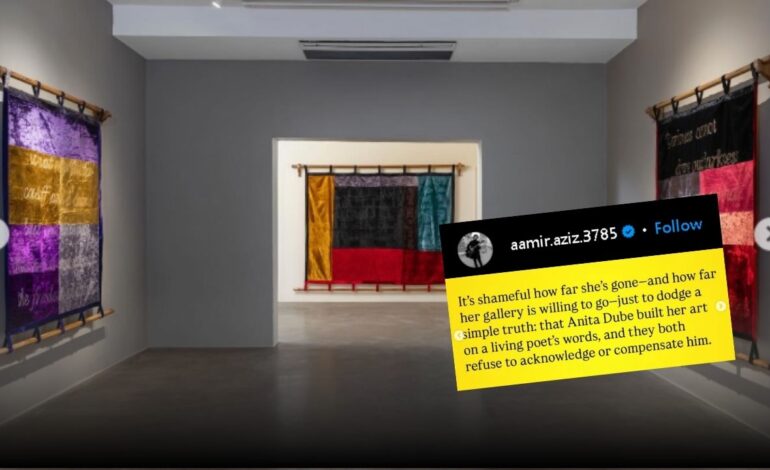
Delhi based artist Anita Dube’s solo exhibition titled ‘Timanjala Ghar’ at the Vadehra Art Gallery was to conclude formally on 19th April. An exhibition that had not created any impact in the art scene is currently discussed vigorously in the public domain for an alleged intellectual copyright breach by the artist. In some of her works, Dube had used the lines of the famous protest rap poetry, ‘Sab Yaad Rakha Jayega’ by Aamir Aziz.
Aziz went public with social media posts saying that his poem was used for commercial purpose without proper acknowledgement by the artist or the gallerist. After the initial lull, for both the parties are dear to the intellectually inclined art personalities, the issue has now set the social media on fire. While most of them bat for Aziz, there are several apologists for Dube as well. Maintaining political correctness in opinion seems to be a tightrope walk when both the parties are from the same side of the fight; fight for equal right and justice, free citizenship and freedom of expression.
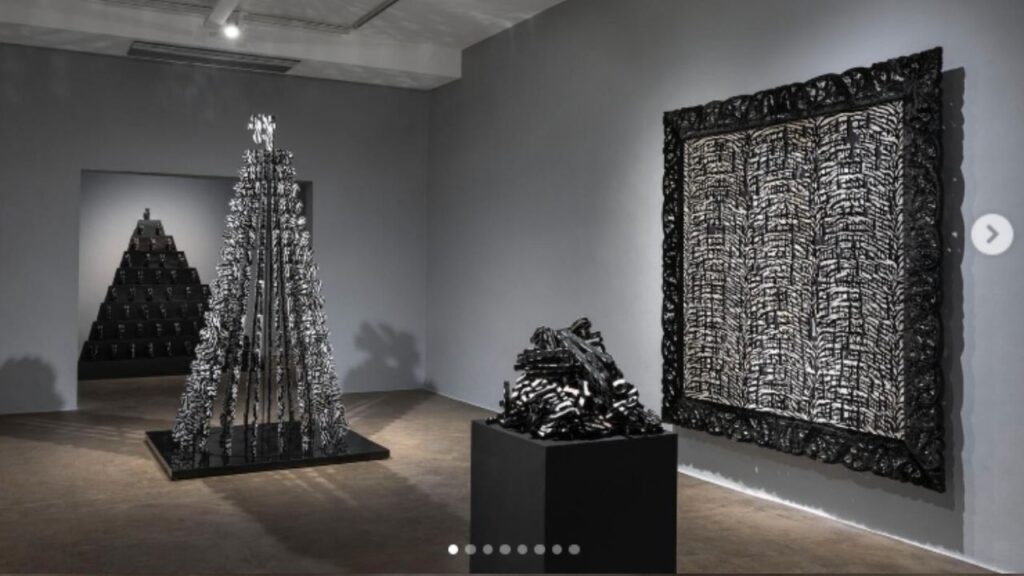
Going by the poet’s posts, one could understand that his protest had reached the concerned parties and they had made certain ‘adjustments’ in acknowledging the poet and his contributions. However, Aziz is not satisfied with that. He feels that the changes made were half-hearted and insincere. The artist in question has neither reached out to the poet nor has she made any attempt to reply on the allegations levelled against her so far.
Any art form is referential; at times, it refers to the already existing modes of expression, with or without acknowledgement, and at other times, it remains self-referential. In either case, art grows on the existing cultural milieu and its products. When the artists are dead and gone, even if they have left family estates and trusts, often images, lines, expression and so on are liberally adopted or incorporated by other artists, despite the statutory warnings and legal bindings in place. This liberalism in art is often tolerated if it remains within the limits, not bringing disrepute to the dead artists or their trusts or not used for purely commercial purposes that bring monetary profits to the user.
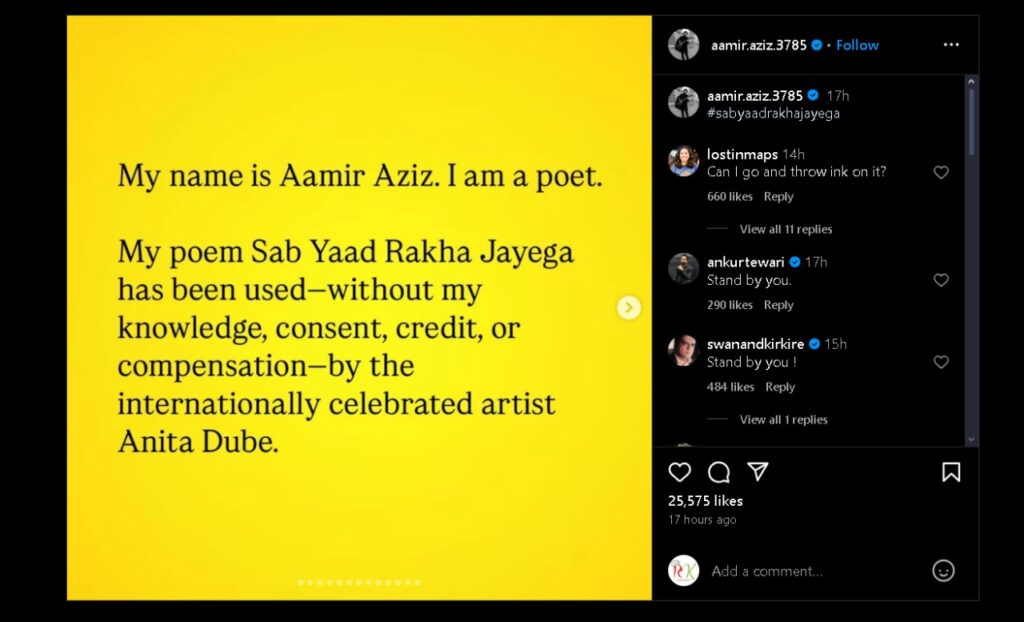
Aziz’s allegation strongly suggests that Dube, besides breaching the copyright (which could have been corrected by due acknowledgement in concurrence with the poet), has used it for commercial purpose which would bring her financial profits. Of late, the breach of copyright has been a very hot issue in the film-music industry, with Ilayaraja, the music maestro, demanding profit share even from the popular singers who sing his songs on platforms that bring them financial gains.
Ilayaraja’s stance had initially irked many in the popular industry, however they too had to finally oblige the music director either by not using his creations or sharing the profits with him. Makers of a Malayalam movie, Manjummal Boys (2024) used a classic composition of Ilayaraja from the movie ‘Guna’ (1991) and he immediately responded to it with a legal notice. Recently, Thala Ajith Kumar, one of the prominent heroes in the Tamil film industry used references of three songs by Ilayaraja, in his movie, ‘Good Bad Ugly’ (2025) and got into a legal soup as the veteran music director went to court, demanding a financial compensation of Rs.5 Crore.

Copyrights are protected in Indian constitution. Copyright Act 1957 protects literary, dramatic, musical, and artistic works, granting exclusive rights to creators for a certain duration. Designs Act 2002 protects the aesthetic appearance of products, granting exclusive rights to designers. That simply means reference of any creative material needs permission from the creators, which here in the case of Aziz has not been sought.
Vadehra Gallery has taken down the pages that refer to the exhibition for their safety so that no record of this exhibition ‘officially’ exists in the public domain, though their Instagram page still has the invitation for this show, posted a couple of weeks ago. Considering the previous operational records of the Vadehra Gallery, one could say that they have always taken care of such copyright issues. Most of the major galleries and private museums meticulously acknowledge such collaborations and copyright matters.
Infringement of copyright often passed off as eclecticism or artistic freedom, even when financial profits are implied when it is exhibited. One of the prominent artists, Atul Dodiya often makes references to the works of the world masters such as Marcel Duchamp, Pablo Picasso, Raja Ravi Varma, Joseph Beuys and so on in his own paintings. These explicit references are often seen as inter-textual and historical references which require no further acknowledgement even if they are at times ‘copyright free’ images.
The issue has triggered a flurry of opinions in the social media. Orjit Sen, artist, designer, graphic novelist and freedom activist was to sound out the issue early on. He asked haven’t most of us chanted those lines of Aziz during the past few years. Then he posted the original post of Aamir Aziz. This ambivalence of Sen’s seems to be a sort of fence sitting. Was he implying that we all had sung ‘Yaad Rakha Jayega’ of Aziz therefore there was no problem in an artist using the same lines in her works?
However, Aziz is clear in his post. He writes: “What Anita Dube has done isn’t a gesture of solidarity or resistance, it’s the oldest trick in the book, inherited from the same colonial masters: steal the voice, erase the name, and sell the illusion of originality. It’s the art world feeding on the very margins it claims to stand with. It is the systematic erasure of authorship in favour of monetary profit.”
“The poem raged against injustice. Anita Dube turned it into a luxury commodity, proof not only that injustice is alive, but that it now wears silk gloves and sells itself as art. That a poem written in defiance was gutted, defanged, and stitched into velvet for profit. That a poet’s voice was looted, and the looters still pretend to be revolutionaries,” he adds.
While the literati are with Aziz, the glitterati seem to be raising safeguards for Dube. The arty-socialist-intellectuals are for the ‘copyleft’ approach that definitely absolves Dube of any wrong doing. However, the mood of those who like the down to earth activism, sacrifice for common good and the dare-devilry of Aamir Aziz’s poetry, is different.
Aamir Aziz hails from Patna and is a young engineering graduate from the Jamia Millia Islamia, whose protest rap poems have found resonance in several young and old hearts since his debut in the poetry scene with ‘Acche Din Blues’ and ‘The Ballad of Pehlu Khan’, two Youtube-d albums in 2019. His ‘Yaad Rakhaa Jayega’ became the anthem of the protestors during the CNRC protest and the police actions that followed in the Jamia Millia Islamia and elsewhere. Aziz’s poem was translated and presented by Pink Floyd’s Roger Waters while demanding the release of the Wikileaks founder Julian Assange.





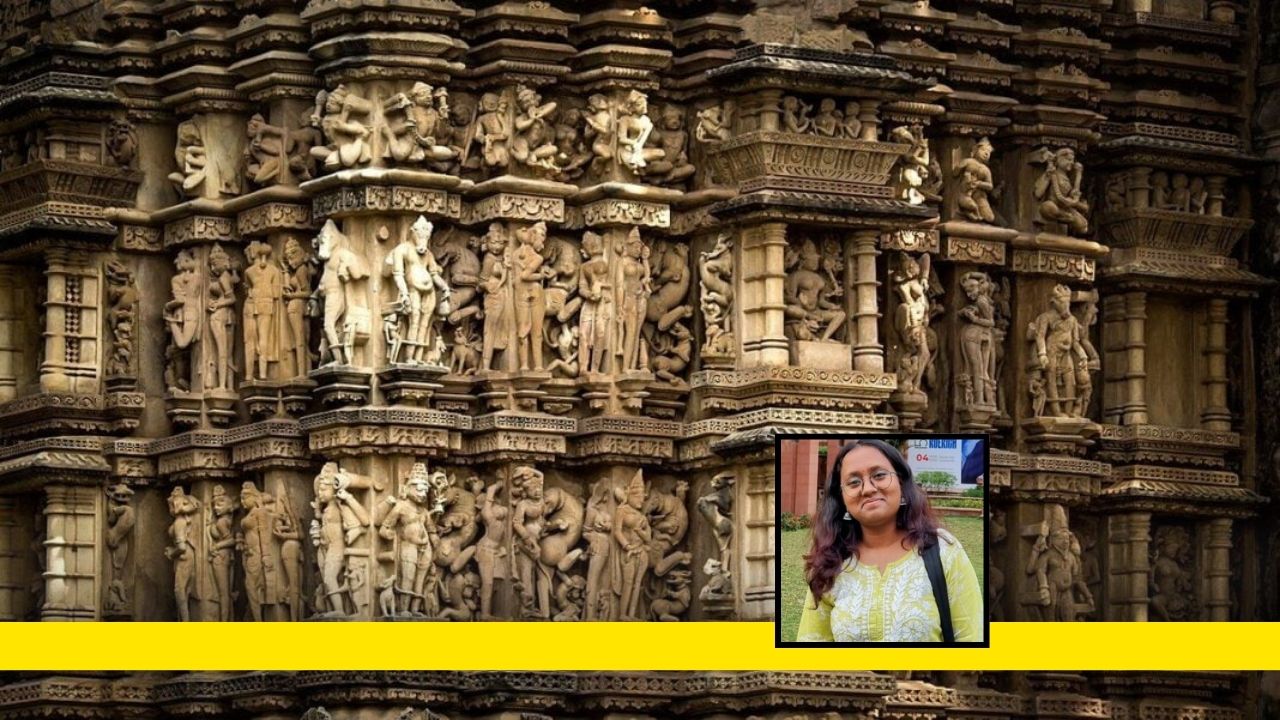

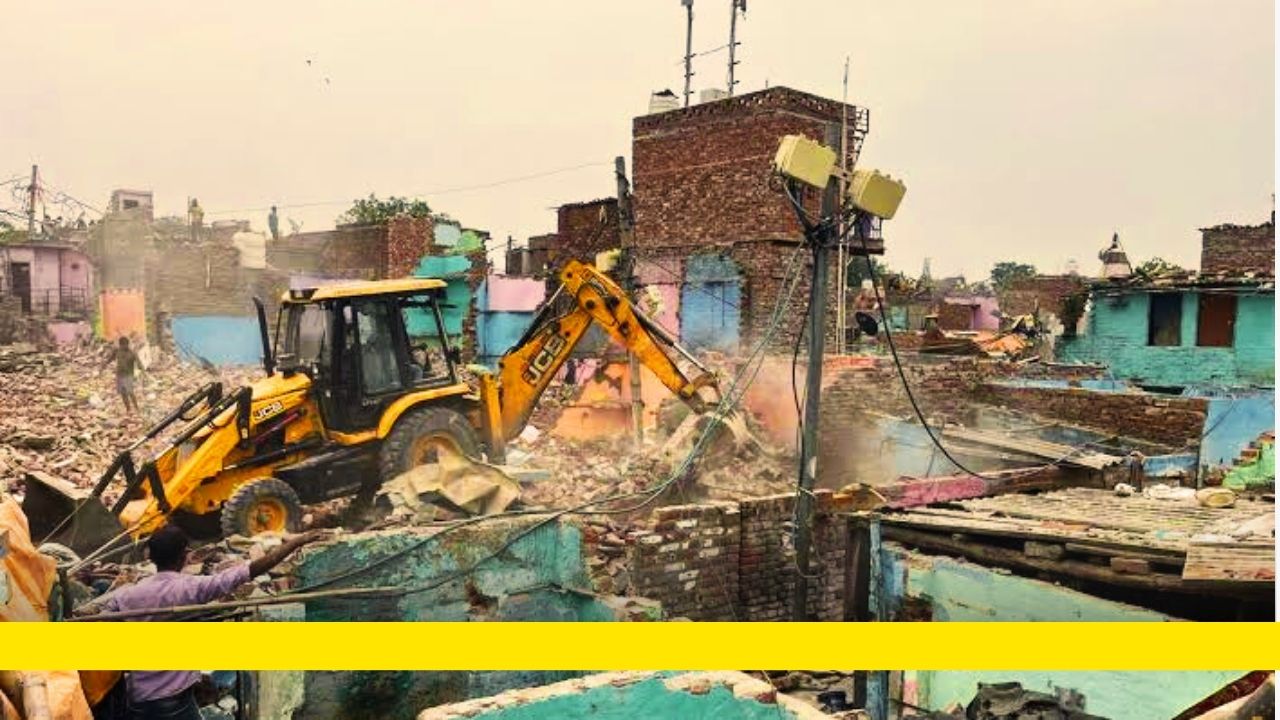




Very important article highlighting the horrors of wanton plagiarism. In solidarity with Amir . Salutes to Johny ML